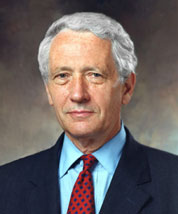The United States is the world’s largest foreign aid donor. But foreign aid is a diverse endeavor, encompassing a bewildering array of programs, both bilateral and international. While some aid programs are aimed at economic development, many others are intended to achieve other goals, such as fighting disease, supporting a friendly government, or providing disaster relief.
Intended to serve multiple purposes, the universe of U.S. foreign aid programs achieves only mixed results. Evaluating effectiveness is also elusive. The best measure of effectiveness might be whether a program accomplishes what it purportedly sets out to do, but aid agencies rarely get around to serious evaluation of individual programs.
Recommendations
The next President should follow a two-pronged strategy which will serve to produce a much-needed discussion on this important issue. First, there should be several evaluative initiatives undertaken to ground the foreign aid assistance decisions in better data:
- all foreign aid programs should be systematically evaluated, based on their unique goals, rather than the overarching, sometimes irrelevant criterion of economic development
- food aid policy, in particular, should be evaluated to determine its impact on hunger and on long-run agricultural development in recipient countries
- a consistent method should be established for comparing foreign aid efforts across developed nations that takes into account the contributions of private philanthropy and foreign-born workers’ remittances
Second, the new administration should build on recent programmatic trends in foreign aid that reflect a bipartisan consensus:
- increase well-conceived health and education efforts, because they are valuable on their own terms and promote economic development
- expand collaborations among federal agencies, with other countries, and with international institutions and non-governmental organizations
- place World Bank lending on a more rational footing, by demanding concrete moves away from corruption both within the Bank and in recipient countries, and by limiting the implicit loan subsidy to middle-income countries, especially China
- continue the recent shift toward grants, away from loans.
Opportunity 08 aims to help 2008 presidential candidates and the public focus on critical issues facing the nation, presenting policy ideas on a wide array of domestic and foreign policy questions. The project is committed to providing both independent policy solutions and background material on issues of concern to voters.



